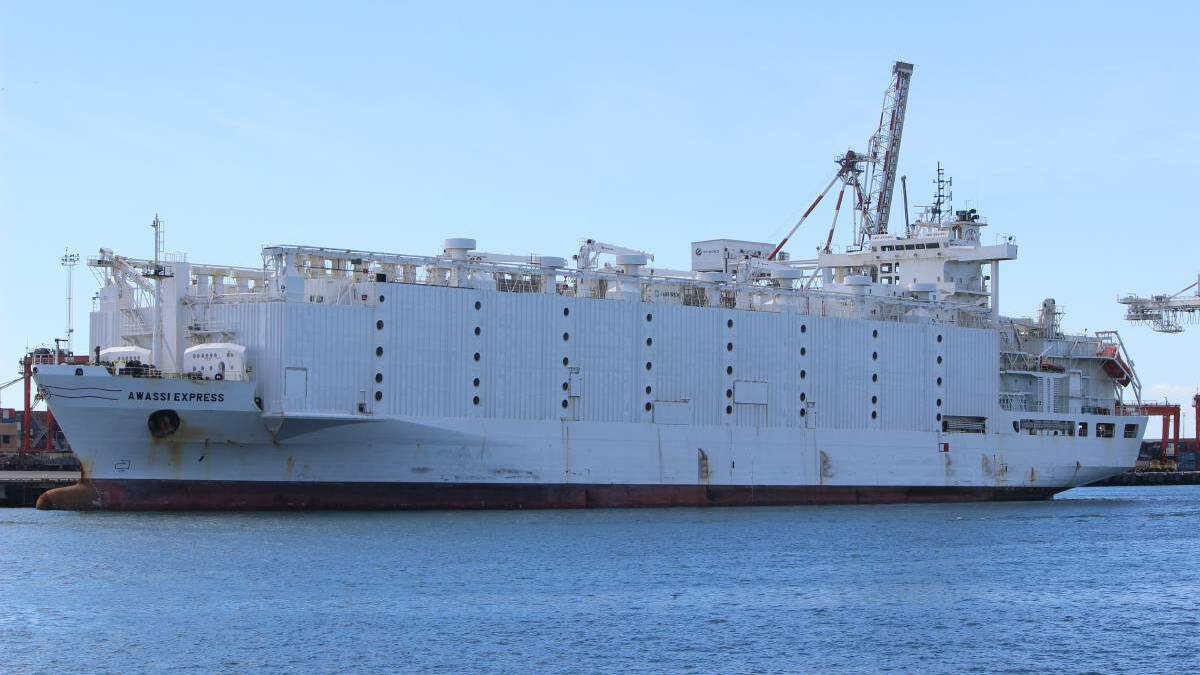
SHEEP and cattle producers supplying the live export trade are demanding an immediate inquiry into claims animal activist groups pay for footage of stock in distress and ship workers are offering to set up sensational shots by turning off ventilation systems.
Subscribe now for unlimited access to all our agricultural news
across the nation
or signup to continue reading
They say claims of tens of thousands of dollars changing hands for sensational footage and the staging of cruelty both on board ships and in overseas abattoirs have been long standing.
Now The Daily Telegraph has obtained emails between high profile organisation Animals Australia and ship workers discussing payments, and bank statements showing the organisation’s whistleblower in the Awassi Express affair had received $38,000 from Australian accounts, it was time to put some long-overdue public scrutiny on the way it runs its business, producers said.
The Awassi footage, aired on 60 Minutes, was the catalyst for a Federal Government investigation into the ship and the suspension of its licence.
“Given the level of influence this questionably-obtained footage of animal suffering has had on the policy and regulatory decisions made by Federal Agriculture Minister David Littleproud, the Prime Minister needs to immediately undertake and inquiry into the actions of Animals Australia,” Pastoralists and Graziers Association of Western Australia president Tony Seabrook said.
Animals Australia told Farmonline in 2018 60 Minutes did not pay for the footage, however today declined to directly answer the question of whether it has ever paid, or offered to pay, for footage of animals suffering.
It said the whistleblower was now a key witness for the Commonwealth in a major criminal justice investigation into the Awassi Express matter, that Animals Australia had assisted this investigation and would not be commenting further while it was underway.
The organisation also said the whistleblower was brave and “came forward because of his genuine concerns about the suffering of animals in this disgraceful trade.”
“The indisputable evidence of animal abuse obtained by whistleblower was corroborated by other workers from the Awassi Express who were similarly concerned about the suffering of animals on the vessel. The overwhelming evidence of suffering across five voyages, confirmed in End of Voyage Vet Reports, was accepted by industry associations and Government regulators,” Animals Australia said in a statement issued today.
Northern Territory Cattlemen’s Association chief executive officer Ashley Manicaros said live export cattle suppliers were concerned, having experienced the 2011 ban on the back of footage and media coverage, about footage being obtained by paying people.
“There needs to be some level of inquiry into the stories that have surfaced today, particularly around allegations of offers to cut off ventilation, and the Government can decide who is best placed to carry out the inquiry,” he said.
Northern Territory Livestock Exporters Association chair David Warriner said the allegations made against Animals Australia were extremely serious and warranted more explanation than what had been offered.
“The industry has accepted responsibility for what occurred on that vessel and has taken significant steps to ensure that such incidents do not happen again,” he said.
“What we must not forget is the events the footage triggered – government investigations into individual exporters, three different independent government reviews, independent observers put on vessels and the partial shutdown of the trade out of Western Australia resulting in significant hardship for producers and supply chain stakeholders across Australia.
“If there is any question as to how this footage was obtained or under what circumstances, then thousands of people across Australia who have suffered as a result deserve a proper answer.”
Producer groups said it should be kept in mind Animals Australia has reported it spent $4.4 million in the 2017/18 financial year on campaigns to end the live sheep trade and had a total income of $9.3m for the year.
Those making donations had a right to know if some of that was spent on paying for footage, they argued.
“Given the importance of animal welfare outcomes in the live export trade to the general public, it is essential they are given a true picture of the high level of animal welfare care provided by exporters during ocean voyages, rather than emotive footage obtained by paid ship workers more interested in their own financial gain, rather than the ensuring health and safety of the animals they were paid to care for,” Mr Seabrook said.
Farmonline has contacted Minister Littleproud’s office and it is understood a response is being prepared.
Deputy Prime Minister Michael McCormack said if they were made, payments would provide a perverse incentive to do the wrong thing.
“Some groups have an extreme agenda to try to ban the live animal export trade and have repeatedly shown they’ll stop at nothing to ensure that happens; despite the detrimental outcomes it would create for animal welfare standards,” he said.
“Australia is regarded as a global leader in the trade with the only paddock-to-market animal welfare assurance system that’s also supported by Australian Government regulations and ongoing industry investments in training, equipment and facilities.”


